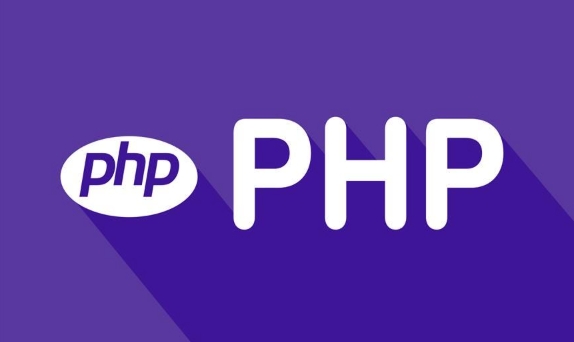PHP manages sessions and cookies to maintain state across HTTP requests. 1. Sessions store data server-side, using a unique session ID stored typically in a cookie (PHPSESSID). 2. Cookies store data client-side, set via setcookie() and accessed through $_COOKIE. 3. Sessions are safer for sensitive or large data, while cookies suit non-sensitive, persistent data. 4. Security practices include regenerating session IDs, setting secure cookie flags, and avoiding storing secrets directly. Example usage includes session_start() and setcookie() with appropriate parameters.

PHP handles sessions and cookies in different but related ways to help maintain state between HTTP requests, which are otherwise stateless. Sessions store data on the server, while cookies store data on the client side. Both are commonly used for things like user authentication, tracking preferences, or maintaining shopping carts.

Here’s how PHP works with each of them and what you should keep in mind when using them.
How PHP manages sessions
When a session starts using session_start(), PHP generates a unique identifier (called a session ID) and stores session data on the server. The session ID is usually sent to the browser via a cookie (PHPSESSID by default), so the browser can send it back on subsequent requests.

- Session data lives on the server, typically in files unless configured otherwise.
- You access session data through the superglobal
$_SESSION. - Sessions last until the browser is closed or until they time out, depending on configuration.
A few important notes:
- Always call
session_start()before accessing or setting any session data. - Don’t forget to close sessions properly if needed (though PHP does this automatically).
- Avoid storing sensitive data directly in sessions — instead, store references (like a user ID), not raw secrets.
Example:

session_start(); $_SESSION['username'] = 'johndoe';
This will save the username in the session, accessible across pages as long as the session is active.
Working with cookies in PHP
Cookies are small pieces of data stored in the user’s browser. In PHP, you set cookies using the setcookie() function before any output is sent (since it modifies HTTP headers).
- Cookies can be accessed via the
$_COOKIEsuperglobal. - They can be persistent (saved beyond the current session) or temporary (deleted when the browser closes).
- You can control their lifetime, path, domain, and security settings.
Some key points:
- Be careful with expiration times — use
time() 3600style timestamps. - Set secure and httponly flags for better cookie security.
- Never trust cookie data blindly — treat it like user input.
Example:
setcookie('theme', 'dark', time() 86400, '/', '', true, true);This sets a secure, HTTP-only cookie that lasts a day and is available site-wide.
Session vs. Cookie: When to use which
Understanding when to use sessions and when to use cookies helps avoid misuse and potential security issues.
- Use sessions when you need to store sensitive or large amounts of data on the server. Since only the session ID is exposed to the client, it’s safer than cookies.
-
Use cookies for non-sensitive data that needs to persist across visits or be accessible to JavaScript (unless you set
httponly). - Combine both when needed — for example, storing a session ID in a cookie and keeping actual data server-side.
Also, keep in mind:
- Sessions rely on cookies by default to pass the session ID.
- Cookies have size limits (usually around 4KB per domain).
- Sessions can be configured to use other storage mechanisms like databases or Redis.
Security considerations
Both sessions and cookies can introduce vulnerabilities if not handled carefully.
- Regenerate session IDs after login using
session_regenerate_id(true)to prevent fixation attacks. - Set cookie options securely — always use
Secure(HTTPS only) andHttpOnlywhere possible. - Limit cookie scope by setting appropriate
pathanddomain.
You don’t need to overdo it every time, but being aware of these points makes your app more robust.
That's basically how PHP works with sessions and cookies. It’s not complicated, but there are enough moving parts to make it worth understanding clearly.
The above is the detailed content of How does php handle sessions and cookies?. For more information, please follow other related articles on the PHP Chinese website!

Hot AI Tools

Undress AI Tool
Undress images for free

Undresser.AI Undress
AI-powered app for creating realistic nude photos

AI Clothes Remover
Online AI tool for removing clothes from photos.

Clothoff.io
AI clothes remover

Video Face Swap
Swap faces in any video effortlessly with our completely free AI face swap tool!

Hot Article

Hot Tools

Notepad++7.3.1
Easy-to-use and free code editor

SublimeText3 Chinese version
Chinese version, very easy to use

Zend Studio 13.0.1
Powerful PHP integrated development environment

Dreamweaver CS6
Visual web development tools

SublimeText3 Mac version
God-level code editing software (SublimeText3)

Hot Topics
 How to use PHP to build social sharing functions PHP sharing interface integration practice
Jul 25, 2025 pm 08:51 PM
How to use PHP to build social sharing functions PHP sharing interface integration practice
Jul 25, 2025 pm 08:51 PM
The core method of building social sharing functions in PHP is to dynamically generate sharing links that meet the requirements of each platform. 1. First get the current page or specified URL and article information; 2. Use urlencode to encode the parameters; 3. Splice and generate sharing links according to the protocols of each platform; 4. Display links on the front end for users to click and share; 5. Dynamically generate OG tags on the page to optimize sharing content display; 6. Be sure to escape user input to prevent XSS attacks. This method does not require complex authentication, has low maintenance costs, and is suitable for most content sharing needs.
 How to use PHP combined with AI to achieve text error correction PHP syntax detection and optimization
Jul 25, 2025 pm 08:57 PM
How to use PHP combined with AI to achieve text error correction PHP syntax detection and optimization
Jul 25, 2025 pm 08:57 PM
To realize text error correction and syntax optimization with AI, you need to follow the following steps: 1. Select a suitable AI model or API, such as Baidu, Tencent API or open source NLP library; 2. Call the API through PHP's curl or Guzzle and process the return results; 3. Display error correction information in the application and allow users to choose whether to adopt it; 4. Use php-l and PHP_CodeSniffer for syntax detection and code optimization; 5. Continuously collect feedback and update the model or rules to improve the effect. When choosing AIAPI, focus on evaluating accuracy, response speed, price and support for PHP. Code optimization should follow PSR specifications, use cache reasonably, avoid circular queries, review code regularly, and use X
 PHP creates a blog comment system to monetize PHP comment review and anti-brush strategy
Jul 25, 2025 pm 08:27 PM
PHP creates a blog comment system to monetize PHP comment review and anti-brush strategy
Jul 25, 2025 pm 08:27 PM
1. Maximizing the commercial value of the comment system requires combining native advertising precise delivery, user paid value-added services (such as uploading pictures, top-up comments), influence incentive mechanism based on comment quality, and compliance anonymous data insight monetization; 2. The audit strategy should adopt a combination of pre-audit dynamic keyword filtering and user reporting mechanisms, supplemented by comment quality rating to achieve content hierarchical exposure; 3. Anti-brushing requires the construction of multi-layer defense: reCAPTCHAv3 sensorless verification, Honeypot honeypot field recognition robot, IP and timestamp frequency limit prevents watering, and content pattern recognition marks suspicious comments, and continuously iterate to deal with attacks.
 PHP calls AI intelligent voice assistant PHP voice interaction system construction
Jul 25, 2025 pm 08:45 PM
PHP calls AI intelligent voice assistant PHP voice interaction system construction
Jul 25, 2025 pm 08:45 PM
User voice input is captured and sent to the PHP backend through the MediaRecorder API of the front-end JavaScript; 2. PHP saves the audio as a temporary file and calls STTAPI (such as Google or Baidu voice recognition) to convert it into text; 3. PHP sends the text to an AI service (such as OpenAIGPT) to obtain intelligent reply; 4. PHP then calls TTSAPI (such as Baidu or Google voice synthesis) to convert the reply to a voice file; 5. PHP streams the voice file back to the front-end to play, completing interaction. The entire process is dominated by PHP to ensure seamless connection between all links.
 How to use PHP to combine AI to generate image. PHP automatically generates art works
Jul 25, 2025 pm 07:21 PM
How to use PHP to combine AI to generate image. PHP automatically generates art works
Jul 25, 2025 pm 07:21 PM
PHP does not directly perform AI image processing, but integrates through APIs, because it is good at web development rather than computing-intensive tasks. API integration can achieve professional division of labor, reduce costs, and improve efficiency; 2. Integrating key technologies include using Guzzle or cURL to send HTTP requests, JSON data encoding and decoding, API key security authentication, asynchronous queue processing time-consuming tasks, robust error handling and retry mechanism, image storage and display; 3. Common challenges include API cost out of control, uncontrollable generation results, poor user experience, security risks and difficult data management. The response strategies are setting user quotas and caches, providing propt guidance and multi-picture selection, asynchronous notifications and progress prompts, key environment variable storage and content audit, and cloud storage.
 PHP realizes commodity inventory management and monetization PHP inventory synchronization and alarm mechanism
Jul 25, 2025 pm 08:30 PM
PHP realizes commodity inventory management and monetization PHP inventory synchronization and alarm mechanism
Jul 25, 2025 pm 08:30 PM
PHP ensures inventory deduction atomicity through database transactions and FORUPDATE row locks to prevent high concurrent overselling; 2. Multi-platform inventory consistency depends on centralized management and event-driven synchronization, combining API/Webhook notifications and message queues to ensure reliable data transmission; 3. The alarm mechanism should set low inventory, zero/negative inventory, unsalable sales, replenishment cycles and abnormal fluctuations strategies in different scenarios, and select DingTalk, SMS or Email Responsible Persons according to the urgency, and the alarm information must be complete and clear to achieve business adaptation and rapid response.
 How to use PHP to develop AI-driven advertising delivery PHP advertising performance optimization solution
Jul 25, 2025 pm 06:12 PM
How to use PHP to develop AI-driven advertising delivery PHP advertising performance optimization solution
Jul 25, 2025 pm 06:12 PM
PHP provides an input basis for AI models by collecting user data (such as browsing history, geographical location) and pre-processing; 2. Use curl or gRPC to connect with AI models to obtain click-through rate and conversion rate prediction results; 3. Dynamically adjust advertising display frequency, target population and other strategies based on predictions; 4. Test different advertising variants through A/B and record data, and combine statistical analysis to optimize the effect; 5. Use PHP to monitor traffic sources and user behaviors and integrate with third-party APIs such as GoogleAds to achieve automated delivery and continuous feedback optimization, ultimately improving CTR and CVR and reducing CPC, and fully implementing the closed loop of AI-driven advertising system.
 Beyond the LAMP Stack: PHP's Role in Modern Enterprise Architecture
Jul 27, 2025 am 04:31 AM
Beyond the LAMP Stack: PHP's Role in Modern Enterprise Architecture
Jul 27, 2025 am 04:31 AM
PHPisstillrelevantinmodernenterpriseenvironments.1.ModernPHP(7.xand8.x)offersperformancegains,stricttyping,JITcompilation,andmodernsyntax,makingitsuitableforlarge-scaleapplications.2.PHPintegrateseffectivelyinhybridarchitectures,servingasanAPIgateway






